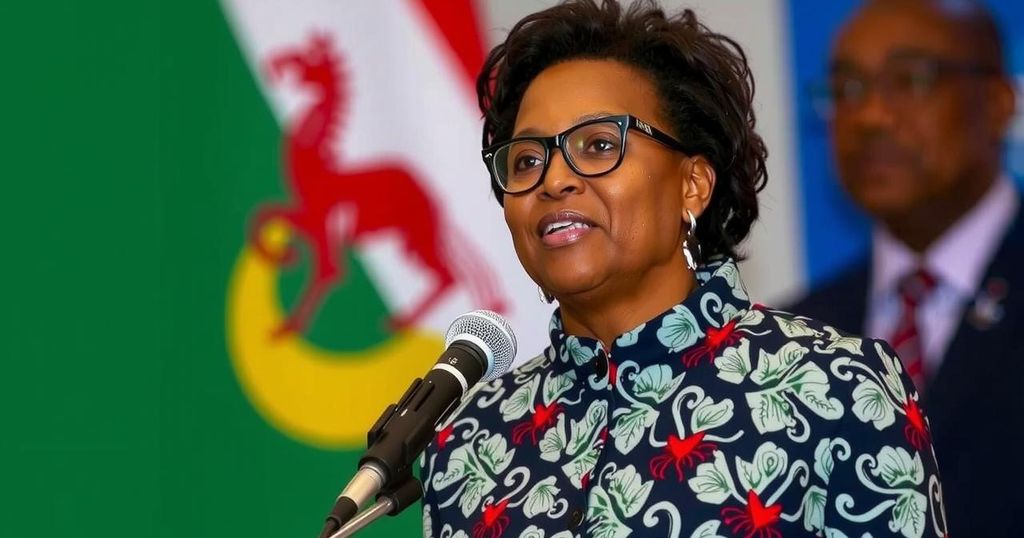Namibia’s Female VP Leads Amidst Electoral Challenges and Opposition Discontent
In Namibia’s recent presidential election, Vice President Netumbo Nandi-Ndaitwah leads despite controversies regarding voting extensions due to logistical issues. The opposition, challenging the legality of the results, argues that SWAPO’s long-standing governance is under scrutiny amidst economic challenges. With approximately 56% of the counted votes, the election could mark a historic moment as Nandi-Ndaitwah aims to become the first female president of Namibia.
In the recent presidential election held in Namibia, Vice President Netumbo Nandi-Ndaitwah of the ruling South West Africa People’s Organization (SWAPO) emerged as a front-runner amidst several voting challenges. Election officials extended the voting period by three days due to various logistical issues, including a shortage of ballot papers. As of the latest reports, Nandi-Ndaitwah has secured approximately 56% of the counted votes, while her main opponent, Panduleni Itula of the Independent Patriots for Change, has garnered about 27%. However, opposition parties have raised concerns regarding the legality of the extension, threatening legal action to contest the election results.
This election is significant not only for the potential to elect Namibia’s first female president but also as a reflection of the underlying discontent with SWAPO’s long-standing governance, which has been marred by corruption and high unemployment rates among the youth. The Independent Patriots for Change party has announced plans to challenge the election in court, indicating a growing unrest against the ruling party’s claims of stability in a region increasingly marked by electoral discontent.
The electoral landscape in Namibia, a country known for its peaceful democratic processes since gaining independence from South Africa in 1990, now faces scrutiny as opposition leaders argue that the extension of voting was conducted unlawfully. Final results are expected soon, with calls from opposition leaders for transparency and equitable treatment of all citizens in the electoral process.
With more than 50 nations conducting elections in 2024, this situation in Namibia reflects wider trends within the region, where ruling parties are encountering significant challenges to their authority. The outcome of this election, both in results and in the responses from the opposition, may serve as a precursor to the political climate in Southern Africa as a whole.
Namibia, located on the southwest coast of Africa, has a rich history of democratic elections since its independence from apartheid South Africa in 1990. The ruling party, SWAPO, has maintained power for over three decades, yet recent economic challenges, particularly high unemployment and corruption scandals, have incited discontent among the populace. These factors contribute to a fragile political environment where opposition parties are increasingly vocal against the ruling party’s tactics. The current election represents a critical juncture for Namibia, particularly with the first female presidential candidate, Vice President Netumbo Nandi-Ndaitwah, seeking to capitalize on both historical significance and the socio-economic challenges facing the nation.
In conclusion, Namibia’s latest presidential election has posed significant challenges regarding transparency and electoral integrity as Vice President Netumbo Nandi-Ndaitwah leads in preliminary results amidst opposition claims of irregularities. The raising of legal disputes by opposition parties highlights a growing sentiment of disillusionment with the ruling party, SWAPO, as voters grapple with economic hardships. The outcome of these elections will be pivotal not only for Namibia’s political future but also for the broader southern African context as nations reassess governance in light of popular grievances.
Original Source: apnews.com




Post Comment